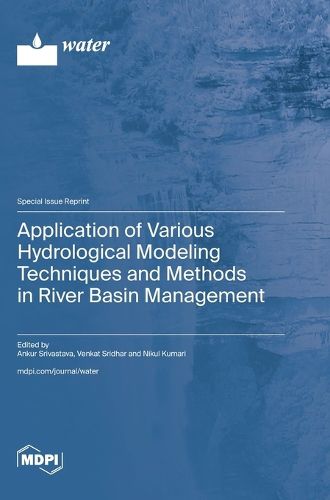Readings Newsletter
Become a Readings Member to make your shopping experience even easier.
Sign in or sign up for free!
You’re not far away from qualifying for FREE standard shipping within Australia
You’ve qualified for FREE standard shipping within Australia
The cart is loading…






This title is printed to order. This book may have been self-published. If so, we cannot guarantee the quality of the content. In the main most books will have gone through the editing process however some may not. We therefore suggest that you be aware of this before ordering this book. If in doubt check either the author or publisher’s details as we are unable to accept any returns unless they are faulty. Please contact us if you have any questions.
Hydrological models, ranging from conceptual to fully distributed frameworks, are essential for understanding and addressing water resource challenges. They offer innovative solutions to stabilize water balances and tackle pressing environmental issues such as droughts, floods, and water scarcity. Complementing these traditional methods, machine learning algorithms (MLAs) have proven highly effective in simulating complex hydrological processes, enabling improved predictions for flood forecasting, drought management, crop modeling, and freshwater allocation. This Special Issue of Water delves into cutting-edge advancements in hydrological modeling, highlighting the integration of remote sensing data and the application of MLAs to enhance the accuracy and efficiency of water resource management. From adapting novel machine learning techniques to assessing water balance components, the research in this collection addresses the critical challenges that are faced by watersheds worldwide. Featuring innovative approaches and practical applications, this Special Issue is an invaluable resource for researchers, practitioners, and policy-makers who are dedicated to advancing hydrological science and fostering sustainable water management solutions.
$9.00 standard shipping within Australia
FREE standard shipping within Australia for orders over $100.00
Express & International shipping calculated at checkout
This title is printed to order. This book may have been self-published. If so, we cannot guarantee the quality of the content. In the main most books will have gone through the editing process however some may not. We therefore suggest that you be aware of this before ordering this book. If in doubt check either the author or publisher’s details as we are unable to accept any returns unless they are faulty. Please contact us if you have any questions.
Hydrological models, ranging from conceptual to fully distributed frameworks, are essential for understanding and addressing water resource challenges. They offer innovative solutions to stabilize water balances and tackle pressing environmental issues such as droughts, floods, and water scarcity. Complementing these traditional methods, machine learning algorithms (MLAs) have proven highly effective in simulating complex hydrological processes, enabling improved predictions for flood forecasting, drought management, crop modeling, and freshwater allocation. This Special Issue of Water delves into cutting-edge advancements in hydrological modeling, highlighting the integration of remote sensing data and the application of MLAs to enhance the accuracy and efficiency of water resource management. From adapting novel machine learning techniques to assessing water balance components, the research in this collection addresses the critical challenges that are faced by watersheds worldwide. Featuring innovative approaches and practical applications, this Special Issue is an invaluable resource for researchers, practitioners, and policy-makers who are dedicated to advancing hydrological science and fostering sustainable water management solutions.